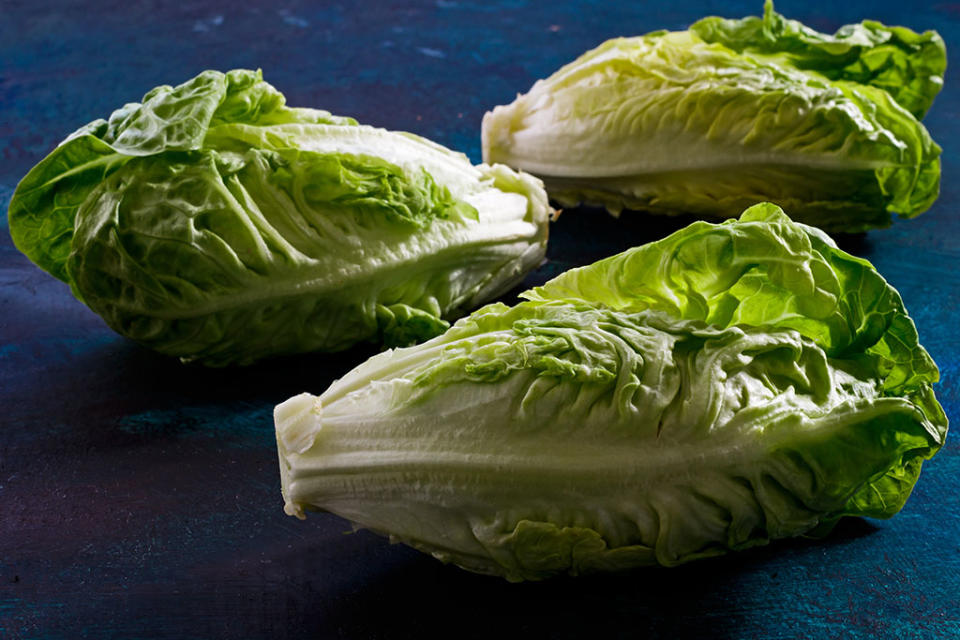E. coli outbreak spreads to 19 states, prompting 42 hospitalizations
The multistate outbreak of E. coli linked to romaine lettuce has spread to include South Dakota, Georgia, and Colorado and now affects 84 people in 19 states, according to the Centers for Disease Control and Prevention (CDC). At least 42 of them have been hospitalized.
Last week, the CDC updated its warning about the outbreak, instructing everyone to throw away all romaine lettuce — including whole heads of romaine and hearts of romaine — unless they can confirm that it’s from somewhere else.
E. coli Outbreak Update: Based on new data, CDC advises throwing away whole heads of romaine and hearts of romaine, plus chopped romaine and salad mixes, from Yuma, Arizona growing region. https://t.co/WTdyf3IWsY pic.twitter.com/F1RHsL3rt4
— CDC (@CDCgov) April 20, 2018
“Do not buy or eat romaine lettuce at a grocery store or restaurant unless you can confirm it is not from the Yuma, Arizona, growing region,” the agency warned. It went on to state that “unless the source of the product is known, consumers anywhere in the United States who have any store-bought romaine lettuce at home should not eat it and should throw it away, even if some of it was eaten and no one has gotten sick.”
If you have chopped lettuce in your refrigerator and you are not sure if it is romaine, you should throw it away, the CDC says. A map of the outbreak on the organization’s website shows that it has extended coast to coast.

The lettuce seems to be coming from the Yuma, Ariz., region, and it is specifically contaminated with E. coli O157:H7. The bacterial infection generally causes severe stomach cramps, diarrhea that is often bloody, and vomiting; it may also cause a fever. Like many other food-borne illnesses, some infections are mild, whereas others can be dangerous.

Recalls of bagged greens seem to be happening often lately. In mid-April, more than 8,700 pounds of bagged ready-to-eat salads were recalled due to possible E. coli contamination. In December, the CDC warned of a multistate outbreak of E. coli linked to leafy greens, and in October, the FDA issued a recall of several types of salad kits due to potential listeria contamination.
This raises a bigger question: Is it safe to eat these products? A few things about bagged greens make them slightly risky, food safety expert Darin Detwiler, PhD, director of the Regulatory Affairs of Food and Food Industry program at Northeastern University, tells Yahoo Lifestyle. One is that people typically do not wash bagged lettuce or cook it; washing could lower the risk that these pathogens will be passed on. (However, Detwiler points out that washing your greens does not guarantee getting rid of food-borne pathogens.)
Bagged greens are also handled more than lettuce and other greens you find in your grocery store’s produce aisle — and that exposes the bagged greens to potential contamination, Elliot T. Ryser, a professor in the department of food science and human nutrition at Michigan State University, tells Yahoo Lifestyle. His research has found that E. coli can “readily transfer” during the processing of leafy greens. Even though sanitizer is used in this processing, it is not 100 percent effective in preventing the spread of E. coli, he says.
Although eating greens that have not gone through this processing step may lower your risk slightly, ultimately, eating raw fruits and vegetables comes with some risk, Benjamin Chapman, an associate professor and food safety extension specialist at North Carolina State University, tells Yahoo Lifestyle. If you are immunocompromised, it might be better to cook your greens before eating them, he says. For everyone else, you are probably OK to keep doing what you’re doing. “The likelihood of becoming ill from fresh-cut produce is still extremely low,” Ryser says.
Read more from Yahoo Lifestyle:
Actress shares shocking photo after losing an ‘inordinate amount of weight’
How a dermatologist found fame by popping pimples on Instagram
Follow us on Instagram, Facebook, and Twitter for nonstop inspiration delivered fresh to your feed, every day.
